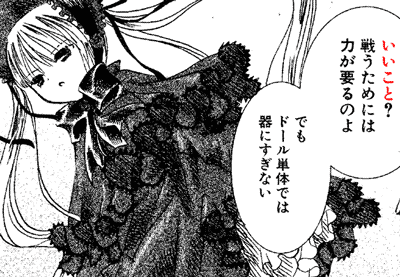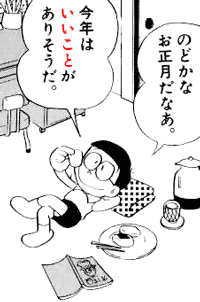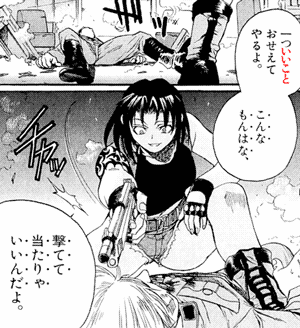In Japanese, ii koto いいこと means literally a "good thing," but it's also used, in female speech, as an interjection to call somebody's attention before telling them something.
It's also spelled ii koto いい事, 良いこと, 良い事, 好いこと, or 好い事. A variant is yoi koto よいこと, よい事.
Normal Usage
The phrase ii-koto いいこと is the i-adjective ii いい, "good," plus the nominalizer koto こと, also spelled koto 事, "thing." It normally means, as you'd expect, "good thing."
It can be used, for example, to talk about good things happening (or not):
- nanka ii koto nai kana?
なんかいいことないかな?
Like, is there nothing good?- Why nothing good happens?
- ii koto ippai
いいこといっぱい
Lots of good things. - ii koto ga okoru
いいことが起こる
Good things happen. - nanika ii koto demo atta no ka?
なにかいいことでもあったのか?
Has something good happened [or something]?- Is that why you're so happy?
- nodoka na
oshougatsu da naa
のどかなお正月だなあ
[It's such a] peaceful New Year, [isn't it?] - kotoshi wa
ii koto ga
arisou da.
今年はいいことがありそうだ。
This year it seems good things will happen.- This year it seems something good will happen.
- Narrator: this year good things wouldn't, in fact, happen.
It can also be used when you do something good:
- ii koto wo shita
いいことをした
[I] did a good thing.
[I] did something good.
Or when you say or hear something good. In the latter case, generally something you wanted to hear, something interesting.
- ii koto iu ne
いいこと言うね
[You] say a good thing.
[You] say something good.
- Well said!
- tama niwa ii koto iu-n-da
たまにはいいこと言うんだ
Occasionally, [you] say something good.- Once in a while you say something good. (implying usually they say nonsense.)
- ii koto kiita
いいこと聞いた
[I] heard a good thing.
[I] heard something good.
[I] heard something [interesting].- I see, I see, very interesting. Very interesting, I say!
- Context: Two-Hands succinctly elaborates her argument against the notion of which the appearance and/or background history pertaining to a firearm is of any importance.
- hitotsu ii koto oseete yaru yo.
一ついいことおせえてやるよ。
[I'll] teach one good thing. - konna mon wa na,
こんなもんはな、
This sorta thing, [you see],- The furigana dots are for emphasis.
- konna mono こんなもの
This sort of thing.
- utete atarya ii-n-da yo.
撃てて当たりゃいいんだよ。
[If you] shoot and [it] hits, [it's] good.
- That's enough.
- atarya - contraction.
- utete atareba ii
撃てて当てればいい
Good if shoot and hit.
Usage in Female Speech
Sometimes, ii koto いいこと appears at the start of sentences and is used to call somebody's attention before saying something, similar to how ano ne あのね would be used.
This usage is female speech, or "female language," joseigo 女性語, so it's likely you'll only ever see female characters using ii koto like this.
- Context: Shinku 真紅 explains how proxy battle-based anime plots work to a main character who just got himself into a proxy battle-based anime plot via magic contract.
- ii koto?
いいこと?
- Just pretend it means "let me tell you something good," or "do you want to hear something good?" or "do you know what's good?" Or something like that, except it's not used before telling someone something good, it's just used to call their attention.
- {tatakau} tame niwa
chikara ga iru no yo
戦うためには力が要るのよ
In order {to fight}, power is necessary.
- To fight, I need power. (no. wai.)
- demo
dooru tantai dewa
utsuwa ni suginai
でもドール単体では器にすぎない
But a doll alone doesn't exceed a vessel.- However, a doll is but a vessel.
- I'm nothing more than a vessel.
- (insert some half-baked anime logic required to shoehorn a middle school kid protagonist into a violent poltergeistic killer doll battle royale here.)
Warui Koto 悪いこと
The phrase warui koto 悪いこと means "bad thing," it's the antonym of ii koto, having warui 悪い, "bad," as the adjective instead.
- kore wa warui koto da
これは悪いことだ
This is a bad thing. - warui koto wo shita
悪いことをした
[I] did a bad thing.
[I] did something bad. - warui koto wo shite wa ikenai
悪いことをしてはいけない
Doing bad things is no go. (literally.)
Doing bad things is bad.
[You] shouldn't do bad things. - warui koto shicha ikenai
悪いことしちゃいけない



No comments: